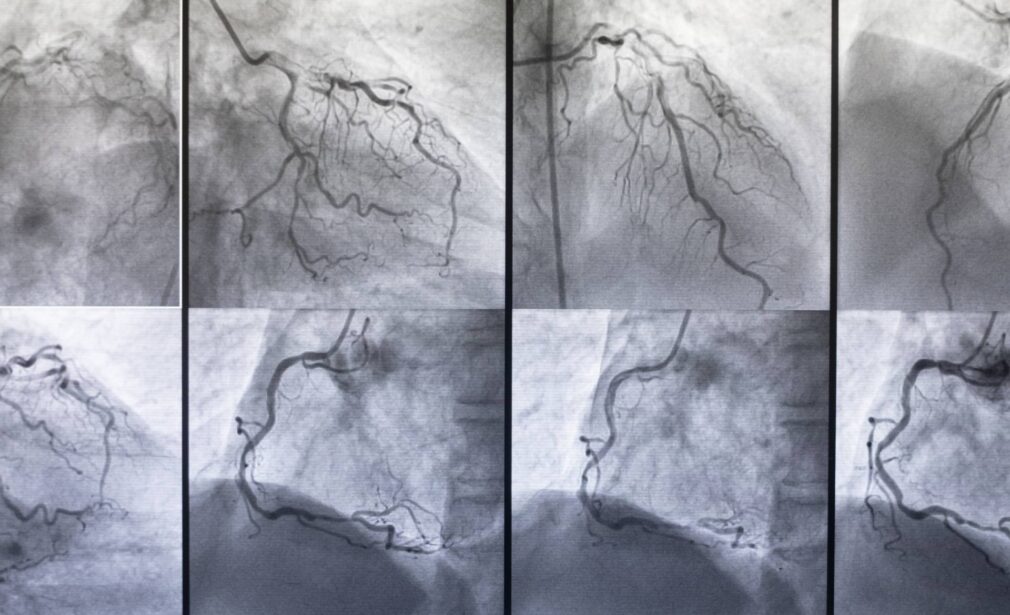Coronary Angiography (CAG) & PTCA in Mohali
Expert Cardiac Care for Blocked Arteries
Heart disease is one of the leading causes of illness worldwide, and timely diagnosis is critical in preventing life-threatening events such as heart attacks. At her state-of-the-art clinic in Sector 63, Mohali, Dr. Honey Sharma, a highly skilled Interventional Cardiologist, specializes in advanced diagnostic and treatment procedures, including Coronary Angiography (CAG) and Percutaneous Transluminal Coronary Angioplasty (PTCA).
With years of experience in performing complex coronary interventions via the transradial (wrist) route, Dr. Sharma ensures minimal discomfort, quicker recovery, and superior clinical outcomes for her patients.
What is Coronary Angiography (CAG)?
Coronary Angiography is a specialized diagnostic test used to visualize the blood vessels of the heart (coronary arteries). This procedure helps identify blockages, narrowing, or abnormalities that may be restricting blood flow.
Key Benefits of CAG:
Detects the presence and severity of artery blockages
Guides treatment decisions, including angioplasty or surgery
Minimally invasive, with a quick recovery period
During the procedure, a thin catheter is inserted—usually through the wrist (radial artery) or groin (femoral artery)—and guided to the coronary arteries. A special contrast dye is injected, and X-ray imaging captures detailed pictures of the arteries, allowing Dr. Sharma to assess the condition of the heart’s blood vessels.
What is PTCA (Percutaneous Transluminal Coronary Angioplasty)?
If blockages are detected during coronary angiography, PTCA is often performed in the same sitting to restore normal blood flow. This minimally invasive procedure involves using a small balloon to open up narrowed arteries, often followed by placing a stent to keep the artery open.
Benefits of PTCA with Stenting:
Immediate improvement in blood flow
Relieves symptoms like chest pain (angina) and breathlessness
Reduces the risk of heart attack
Quick recovery with minimal hospital stay
Why Choose Dr. Honey Sharma for CAG & PTCA in Mohali?
Dr. Sharma is known for her precision-driven approach and commitment to patient safety. Here’s why patients across Punjab choose her:
Expertise in Transradial Procedures – Faster recovery, fewer complications, and greater comfort compared to traditional femoral access.
Advanced Imaging Support (OCT/IVUS) – Ensures accurate stent placement and long-lasting results.
Experience with Complex Cases – Skilled in handling left main disease, bifurcation lesions, and heavily calcified blockages using advanced techniques like Rota-Ablation and Intravascular Lithotripsy (IVL).
Compassionate Care – Clear communication, personalized treatment plans, and continuous patient support.
Step-by-Step Process of CAG & PTCA
1. Pre-Procedure Evaluation
Complete medical history review
Blood tests and ECG
Echocardiogram (if required)
Detailed explanation of the procedure
2. Coronary Angiography
Local anesthesia at the wrist or groin
Catheter insertion and dye injection
X-ray imaging to identify blockages
3. Angioplasty (PTCA)
Balloon inflation at the blockage site
Placement of a drug-eluting stent
Post-procedure angiography to confirm success
4. Recovery & Follow-Up
Most patients can walk within hours
Discharge typically within 24 hours for uncomplicated cases
Long-term care plan including medications, lifestyle changes, and follow-up visits
Risks & Safety Measures
While CAG and PTCA are generally safe, minor risks include bleeding, infection, or allergic reaction to the dye. Serious complications are rare but may include artery damage or heart attack.
Dr. Honey Sharma’s expertise, along with advanced hospital facilities in Mohali, ensures the highest safety standards and the best possible outcomes.
Recovery & Lifestyle After Angioplasty
After PTCA, following your cardiologist’s advice is essential to maintain heart health. Recommendations may include:
Taking prescribed medications regularly
Following a heart-healthy diet
Regular exercise as per doctor’s guidance
Quitting smoking and limiting alcohol intake
Managing blood pressure, cholesterol, and diabetes
Cost of CAG & PTCA in Mohali
The cost of these procedures can vary depending on factors such as the type of stent used, complexity of the blockage, and hospital facilities. Dr. Honey Sharma ensures transparent pricing and personalized treatment planning to suit each patient’s needs.
Frequently Asked Questions
1. Is CAG painful?
No. It’s done under local anesthesia, and you may only feel slight pressure during catheter insertion.
2. How long does the procedure take?
Coronary angiography usually takes 15–30 minutes. PTCA may take 45–90 minutes depending on complexity.
3. Will I need to stay in the hospital overnight?
For simple cases, you may be discharged the same or next day.
4. How long will the stent last?
Modern drug-eluting stents can last many years with proper care and lifestyle management.
5. Can I resume normal activities after angioplasty?
Most patients can return to light activities within a few days, but heavy exertion should be avoided for a few weeks.
Book Your Consultation Today
If you are experiencing chest pain, breathlessness, or symptoms of heart disease, don’t delay. Early diagnosis can save lives.

